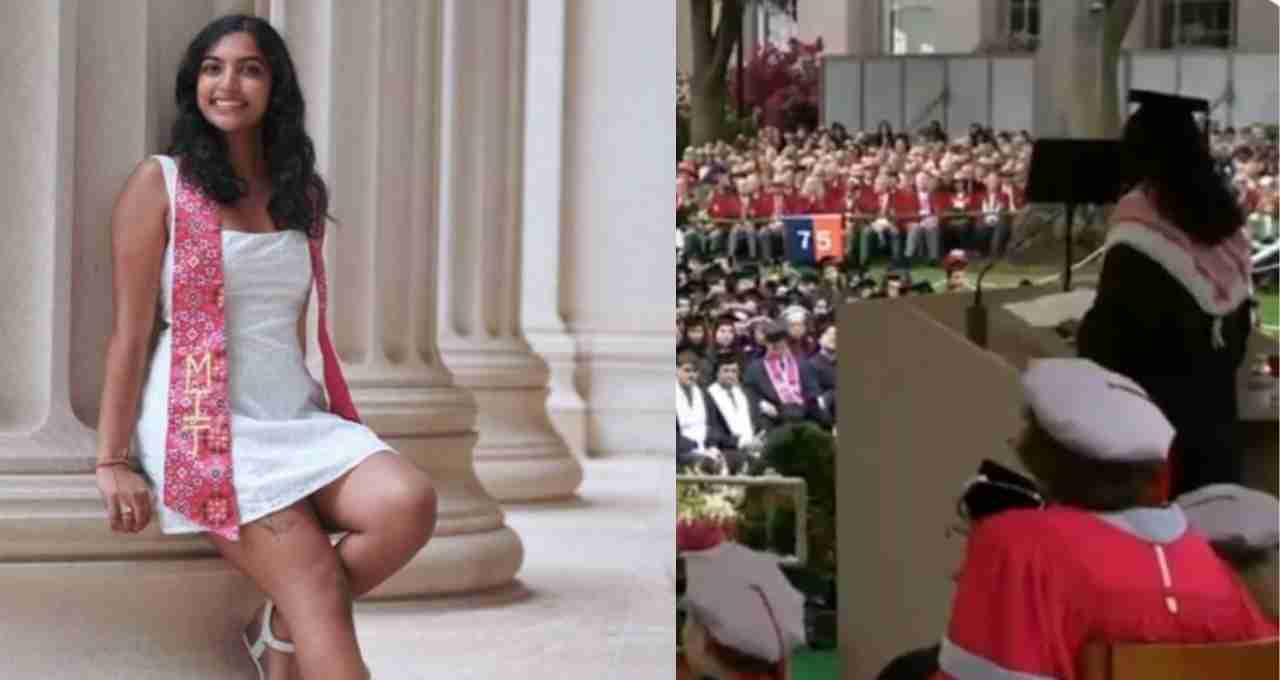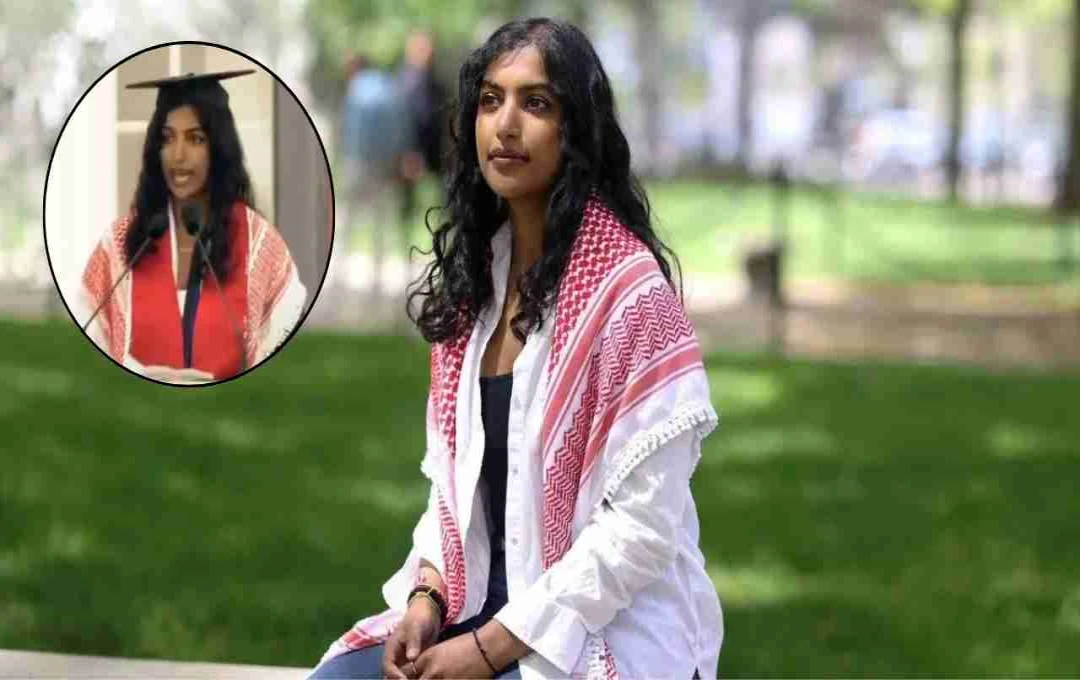A controversial incident recently unfolded at the Massachusetts Institute of Technology (MIT) in the United States, involving an American-Indian student, Megha Vemuri, who was barred from participating in a graduation event.
New Delhi: Megha Vemuri, an Indian-origin student at the prestigious Massachusetts Institute of Technology (MIT), is at the center of a political controversy. Vemuri recently delivered a speech supporting Palestine at a public forum, following which the university barred her from her graduation ceremony. This case highlights the conflict between freedom of expression and university policies.
Who is Megha Vemuri?
Megha Vemuri was born in Alpharetta, Georgia. She completed her schooling at Alpharetta High School and enrolled at MIT in 2021. She graduated with degrees in Computer Science, Neuroscience, and Linguistics and served as the class president of her 2025 graduating class. She was known at MIT for her talent and leadership abilities.
The Controversy – A Speech in Support of Palestine
Megha Vemuri delivered an impassioned speech at an event expressing her support for Palestine. Wearing a red keffiyeh (the symbolic Palestinian scarf), she criticized Israel, stating that MIT maintains research ties with the Israeli occupation forces.

Vemuri accused the university of promoting Israeli military actions against Palestinians. She also urged her fellow students to raise their voices for Gaza and Palestine.
MIT's Response and Action
MIT Chancellor Melissa Nobles took a serious view of Vemuri's actions. She sent Vemuri an official email stating that her conduct violated university regulations. The Chancellor stated, “You intentionally and repeatedly misled organizers. While we respect freedom of expression, using a program's platform to stage a protest and disrupt it is against MIT's rules regarding time, place, and manner.”
Consequently, Vemuri was barred from serving as an event marshal at the 2025 graduation ceremony. This is significant as the role is highly respected among students, indicating that the university considered Vemuri's behavior a serious disciplinary matter.
Freedom of Expression or Disciplinary Violation?
This case presents the challenge of balancing freedom of expression with institutional discipline. Vemuri maintains that she is entitled to express her opinions and that the university should foster dialogue among its student body on the ongoing Israeli-Palestinian conflict. The MIT administration clarified that while the right to expression is important, it must be exercised in a manner and at a time that does not disrupt the purpose and peaceful conduct of an event.

Reactions in Support and Opposition to Vemuri
The controversy has sparked debate on social media and within the academic community. Some have defended Vemuri, arguing that the university attempted to suppress her views. Others believe that academic institutions should not allow political controversies to disrupt their programs and that violating regulations is inappropriate.
Vemuri's actions have ignited a discussion regarding the rights and limitations of political expression in universities. Universities will need to develop better policies for handling such cases in the future, balancing respect for student freedom with maintaining institutional order and the dignity of their events.















